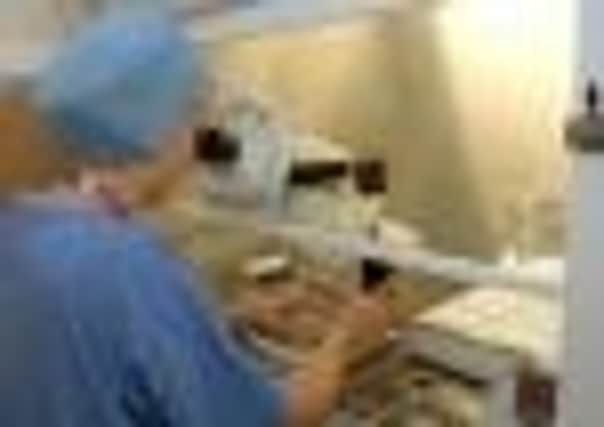New formula needed to bring women to the top in science


As a producer of science TV and a trainer of scientists and other specialists to communicate, I have a professional interest. But what I found is a cause for concern for us all.
A top veterinary school has 80 per cent female undergraduates enrolled but no female professors teaching them; in chemistry, 50 per cent of undergraduates are female but 94 per cent of professors are men; 22 per cent of physics A-level students are female and 7 per cent go on to become top academics.
Advertisement
Hide AdAdvertisement
Hide AdThese statistics are just a taster – I was spoiled for choice. There is clearly some progress but it’s too slow; we’re 50 years behind the US in terms of equal opportunities in science for women.
So what causes so many to stumble between school and the top jobs? Poor confidence levels among girls, bad careers advice in schools plus job insecurity for early career scientists may be in the mix of complex reasons.
But it seems that the rot starts in our children’s early years, with gender stereotyping that we have complacently allowed ourselves to fall into.
For instance: “Shops tell us that science is a boy’s thing.” That statement was made by a 10-year-old boy, during a pilot project for primary schools created by neuroscientist Dr Laura Nelson to challenge gender stereotypes in science. Why does one so young have a prejudiced view, and why did his girl class mate nod in agreement?
Advertisement
Hide AdAdvertisement
Hide AdIt highlights the role that retailers and marketers have in perpetuating stereotypes. As parents we must be on our guard about how we may reinforce such ideas.
We must also examine adult attitudes towards science and innovation regardless of gender, which in turn will affect the representation of any British born individual in the science and innovation industries. A senior academic electronics engineer (who doesn’t want to be named) is infuriated by the UK’s negative perceptions of science and he is not alone.
He claims his engineering school would close overnight if it weren’t for overseas students; that applicants for PhD places in electronics engineering are almost entirely from overseas and that, incredibly, PhD scholarships restricted to UK applicants, with fees and maintenance paid, remain unfilled.
Yet Paul Jackson, CEO of Engineering UK, says this country needs a million more engineers. The existence of such unfilled scholarships and demand seems to illustrate a deeper problem. Sir James Dyson recently bemoaned the lack of good graduate engineers as a consequence of the lure of large City salaries.
Advertisement
Hide AdAdvertisement
Hide AdThe status and rewards for scientists and innovators need to be increased to start solving that problem.
Too many female science graduates don’t make it through to top jobs, but this should not mask the fact that we are losing too many male graduates as well.
Some work is already underway here by the science community. One excellent example of a tireless ambassador for science is space scientist Dr Maggie Aderin-Pocock. She is constantly out there, inspiring the next generation of boys and girls in a way that is enlightening and exciting.
We need an army of role models like her – men and yes, far more women – promoting science to make it the career of choice for our best brains.
Advertisement
Hide AdAdvertisement
Hide AdScientists, engineers and innovators need to raise their own public image, so that the wider population understands what they do, how they change and shape the world, and how they could lift the country out of recession by attracting high-tech companies like Siemens, Nokia and Fujitsu to university neighbourhoods (as is presently happening in China).
A new survey by the Department for Business, Innovation and Skills claims 60 per cent of the British public believe scientists put too little effort into informing the public about their work.
As well as explaining their work, scientists must also recruit, retain and pro mote talent from this country’s diverse communities - not for political correctness but to be competitive with the rest of the world.
Barbara Govan is CEO of Screenhouse Productions, a science TV and specialist corporate video company based in Leeds, which trains scientists, business leaders, academics and other professionals to raise their profile.